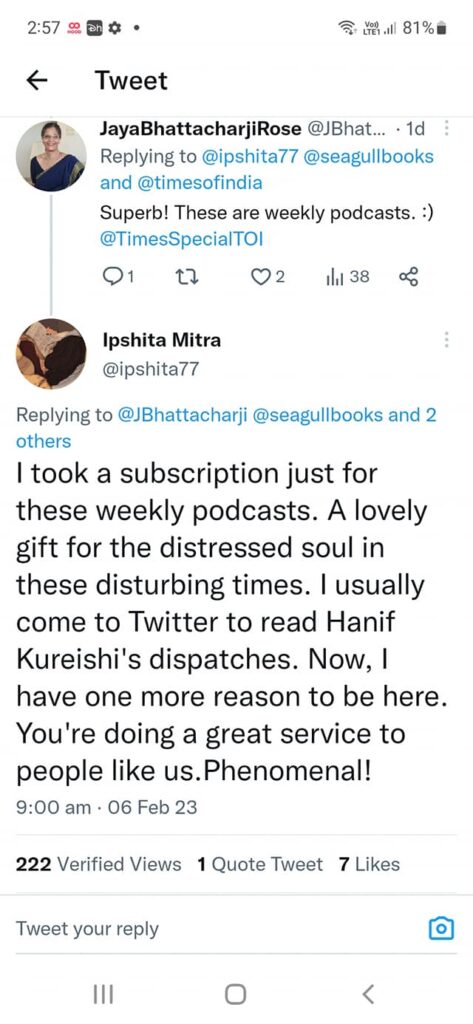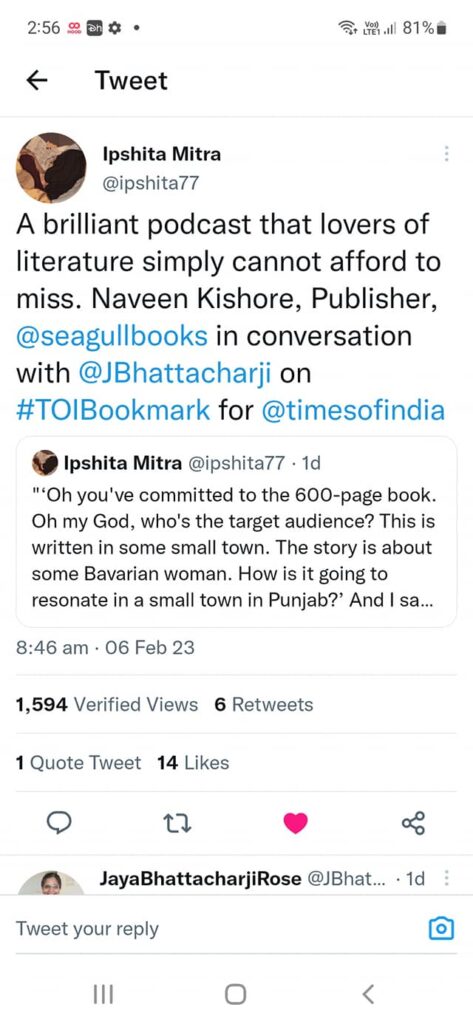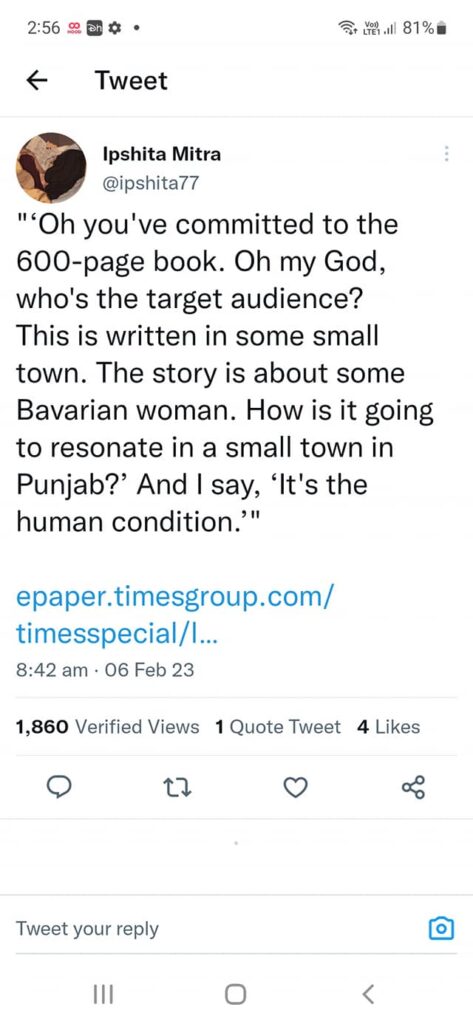TOI Bookmark podcasts



In the middle of December 2022, TOI Bookmark, weekly podcasts on books and literature was launched by The Times of India (TOI) . TOI has a new vertical dedicated to podcasts called Times Specials / ( @TimesSpecialTOI). It is specially curated premium content from across the Times Group, for digital audiences. I record every week with incredible writers and publishers, based around the world. The Times of India, of course, is the world’s largest newspaper and India’s No. 1 digital news platform with over 3 billion page views per month. Times Specials podcasts will be promoted across all TOI platforms, including print.
Some of those featured so far are International Booker Prize 2022 winner Geetanjali Shree, translator Daisy Rockwell, popular writers Chitra Banerjee Divakaruni, Ashwin Sanghi, Amish Tripathi, political scientist and academic Nalin Mehta, oral historian and chronicler Aanchal Malhotra, publisher ( Seagull Books) and poet Naveen Kishore, and many more.
And then on 5 Feb 2023, I got tagged in these incredibly generous tweets by Ipshita Mitra. Thank you for listening, Ipshita!
9 Feb 2023
